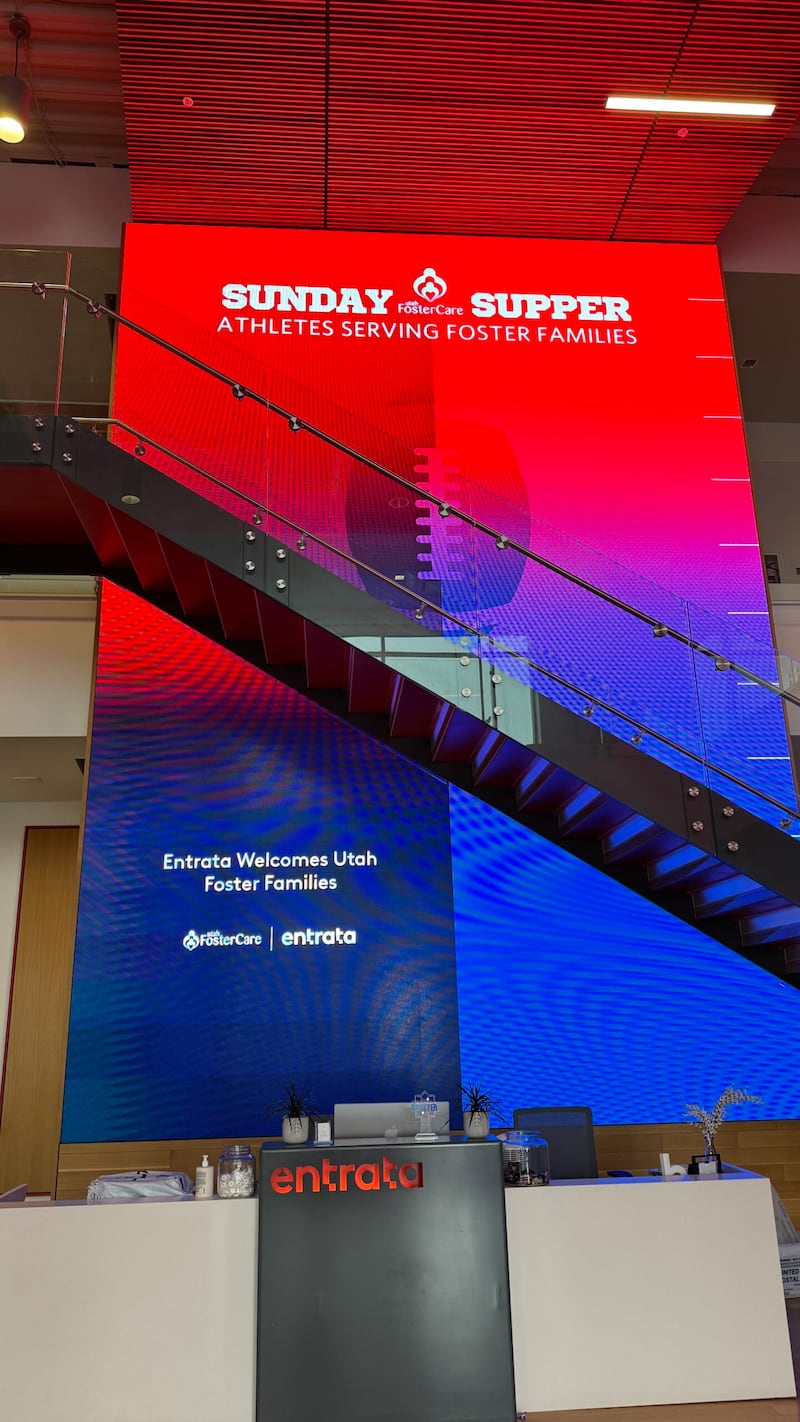Pomp and Circumstance echoes in the air and graduation caps are tossed in celebration; the season is a joyous milestone for many. Young adults gather with family and friends to talk about the world that, for the first time, is theirs for the conquering. However, for a significant number of foster youths in Utah, this time marks a daunting transition into adulthood without a traditional support system.
In the United States, 20,000 young adults will age out of foster care each year. 81 percent of young men will become incarcerated, and 71 percent of young women will become pregnant, with half of their children destined to be placed back into the foster care system. 40 percent will be homeless in 18 months and 97 percent will likely enter chronic poverty.
“In the last fiscal year, 91 youth aged out of foster care in Utah. While this number is relatively small compared to the 20,000 nationwide, it’s still 91 young lives that need our support,” says Nikki MacKay, CEO of Utah Foster Care. “We are dedicated to providing a safe and nurturing environment for foster children, but the challenges don’t end when they turn 18.”
Utah businesses and business leaders can powerfully impact foster youth by offering pathways to stability and success as they face obstacles. Outside of financial donations, which are needed, there are opportunities to contribute at every level: become a foster parent, support the foster parents you work with, donate your time as a mentor and provide employment opportunities.
“These youth need a consistent, reliable person in their lives. Someone they can turn to without having to RSVP, knowing the door is always open,” MacKay says, emphasizing the importance of connections and mentorship for youth in foster care. “This consistency can significantly change their trajectory.”
According to research by the Center on the Developing Child at Harvard University, “Children who do well despite serious hardship have had at least one stable and committed relationship with a supportive adult. These relationships buffer children from developmental disruption and help them develop ‘resilience,’ or the set of skills needed to respond to adversity and thrive.”
Through Utah Foster Care’s BOSS Bus program, foster youth have the opportunity to connect with mentors and other resources in Utah’s business community. MacKay recalled a visit to Lendio’s offices two summers ago. One young man was particularly affected by the visit and connected with Lendio’s founder and CEO Brock Blake and president and CRO Ben Davis.
Over a year later, during a crisis, he showed up at Lendio’s office because he knew it was a safe place. Davis said to him, “I know your head is telling you all of these things, but your heart is telling you something different, and that’s why you showed up here.” This moment of connection and safety in a time of desperation is a testament to the profound impact businesses can have.

The overlooked transition
Children and youth in Utah’s foster system are put there, at no fault of their own, to remove them from circumstances where they are at risk of abuse, exposure or extreme neglect. Aging out of foster care with little to no connections for support can be isolating.
One young man, who entered foster care at 15 with his younger brothers, says the transition made his personal goals seem distant, especially as he faced additional barriers like the lack of citizenship.
His hope for the future is to have a mentor who can help guide him toward a stable life and meaningful career after foster care.
“I was adopted and then put back into the system at the age of 15,” says Maygan Martinez, co-founder of the 1999 Collective. “The experience was incredibly isolating and challenging, especially without a support system.”
After facing a series of significant challenges, including a devastating car accident and periods of homelessness, Martinez found the strength to redefine her life.
She transitioned into stable housing through Salt Lake County’s Milestone Transitional Living Program and eventually worked as a live-in house manager. In this capacity, she became a mentor, directly supporting other young adults transitioning out of homelessness, guiding them through daily logistics, ensuring compliance with program rules, and assisting with appointment transportation. Her firsthand experience and empathy enabled her to provide exceptional guidance and support to residents.
“Reflecting on my journey, the support I received was crucial, but the defining moment was deciding for myself that this wasn’t going to be my life. This realization has propelled me to help others, ensuring they have the support and resources that I struggled to find,” Martinez says.
Martinez built up her reputation and effectiveness as a homelessness advocate, working with other foster care alums to influence how services were provided to vulnerable populations. After many conversations about the noticeable gaps in the support system for foster youth, Martinez and nine others started the 1999 Collective to ensure that youth aging out of the system have the resources and support they need.
“We’re not trying to recreate the wheel that’s already here. We’re just ensuring that those foster care youth are getting access to the resources. … Since we’ve been through it, we get it and know how to help," Martinez says.
The 1999 Collective currently offers one-to-one mentoring, “Life After Care” courses, emotional support, resource connection and employment services to ensure that those with experience in foster care have every opportunity and capability to thrive.
A community’s role
Everyone has something they can offer the more than 2,000 youth in Utah’s foster care system.
When asked about foster youth’s biggest needs, Martinez highlighted transportation, advantageous jobs and furniture for those transitioning out of care. “If you have a service to provide, we likely have youth who need it. Just reaching out and offering support can make a significant difference,” Martinez says.
While donations are always welcome, MacKay says, “The opportunity to present at any business would be a great way to spread awareness. If there’s someone in the company that wants to be a foster parent or get involved as a volunteer, presentations can provide the avenue to do that.”
Businesses can also host events that include foster families and youth. For example, Entrata hosts Sunday Supper events and sponsors the Fostering Storytellers Program. These events help build relationships and provide a welcoming space for foster youth. Western States Lodging has also created a staycation program to support foster families who need a break.
“Look at what you’re already doing within your business and see how you can incorporate foster families. For example, Entrata’s private Weezer concert included foster families, and Aptive hosted STEM events and kids’ night out for foster youth," MacKay says.
“Youth in foster care are just like the youth you already know. They have hopes, dreams and fears, and they long for love and connection. They are Utah’s most vulnerable population who have come into foster care through no fault of their own,” says Abby Cox, first lady of Utah. “Utah needs more foster parents, especially for teens and sibling groups. A caring community and even just one caring adult can foster healing and a brighter future.”
In a state renowned for its generosity, we face important questions: Who is willing to be that one caring adult who can make a difference in someone’s life? How can we support those who need care and those who selflessly step up to provide it?
“Supporting foster youth isn’t just a moral imperative — it’s an investment in our community’s future,” MacKay says. “When businesses step in to help, they create opportunities for these young adults to thrive and contribute back to society.”
To learn more about becoming a foster parent, volunteering or donating to Utah Foster Care, visit www.utahfostercare.org.
If you want to learn how to donate or become a mentor with 1999 Collective, visit www.1999collective.org.

